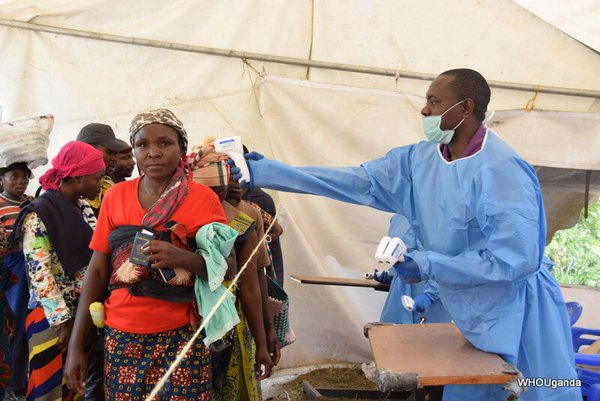- Share this article
- Subscribe to our newsletter
Ebola is spreading across country borders
Following numerous previous alerts, the first case of Ebola Virus Disease in Uganda during the outbreak in neighbouring DRC was confirmed by the Uganda Virus Institute (UVRI), the country’s Ministry of Health and the World Health Organization (WHO) on the 11th June 2019. A five-year-old child from DRC travelling with his family on the 9th June has contracted the disease and is now under care and receiving supportive treatment at Bwera Ebola Treatment Unit (ETU), Kasese District.
The Ministry of Health and WHO have dispatched a Rapid Response Team to Kasese to identify other people who may be at risk, and ensure that contacts are being monitored and provided with care if they also become ill.
Precautions already taken in Uganda
Uganda has previous experience managing Ebola outbreaks. In preparation for a possible imported case during the current outbreak in DRC, it has vaccinated nearly 4,700 health workers in 165 health facilities (including in the Kasese facility where the child is being cared for). Disease monitoring has been intensified, and health workers have been trained in recognising symptoms of the disease. ETUs are in place.
In response to this case, the Ministry is intensifying community education and psychosocial support, and will undertake vaccination for those who have come into contact with the new patient and at-risk health workers who were not previously vaccinated.
Investigational vaccine seems to be effective
People who have been in contact with someone with the disease are offered vaccine and asked to monitor their health for 21 days to ensure they do not become ill as well.
The investigational vaccine being used in DRC and by health and frontline workers in Uganda has so far been effective in protecting people from developing the disease, and has helped those who do develop it disease to have a better chance of survival. The Ministry strongly urges people who are identified as contacts to take this protective measure.
There are no confirmed cases in any other parts of the country.
(WHO/ile)
Read more on the current situation at the WHO Ebola information website: https://www.who.int/ebola/en/


